It’s no secret that the Annual Science Day has become a launchpad for the next generation of innovators, and this year’s event was no exception! Now in its 15th year, the day brought together students to present both individual and group projects that not only highlighted their expertise in science, ICT, and maths, but also provided creative solutions to some of today’s most pressing global challenges.
With nearly half the student body participating, many focused on pioneering renewable energy solutions like solar power and biogas, pushing us closer to a sustainable future.
Take a closer look at the remarkable projects from this year’s Science Day and see how these young innovators are shaping the world of tomorrow.
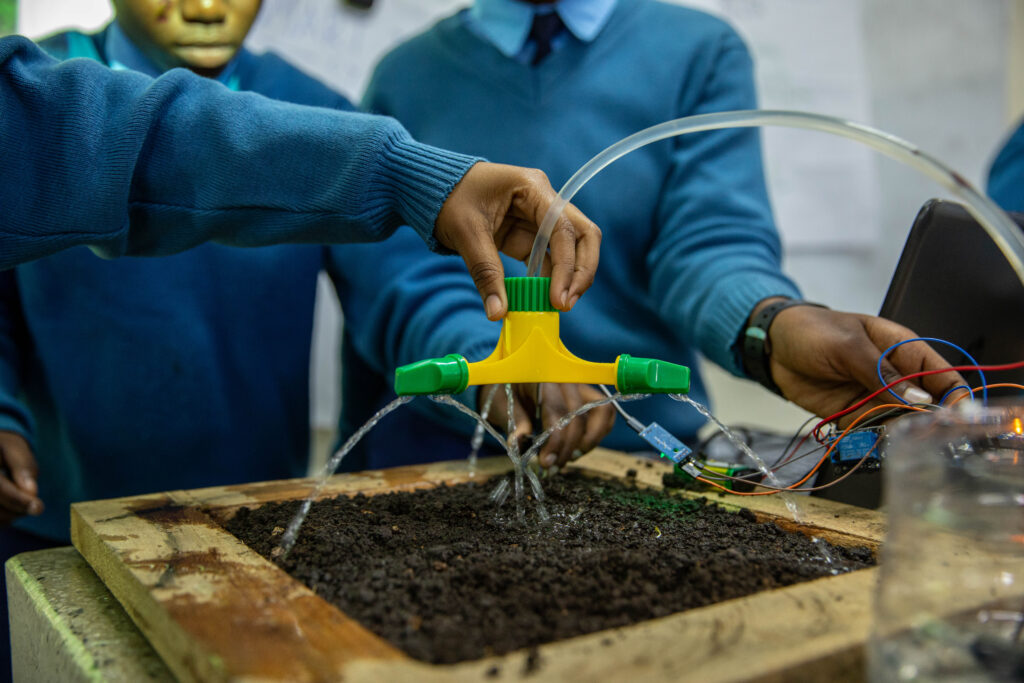
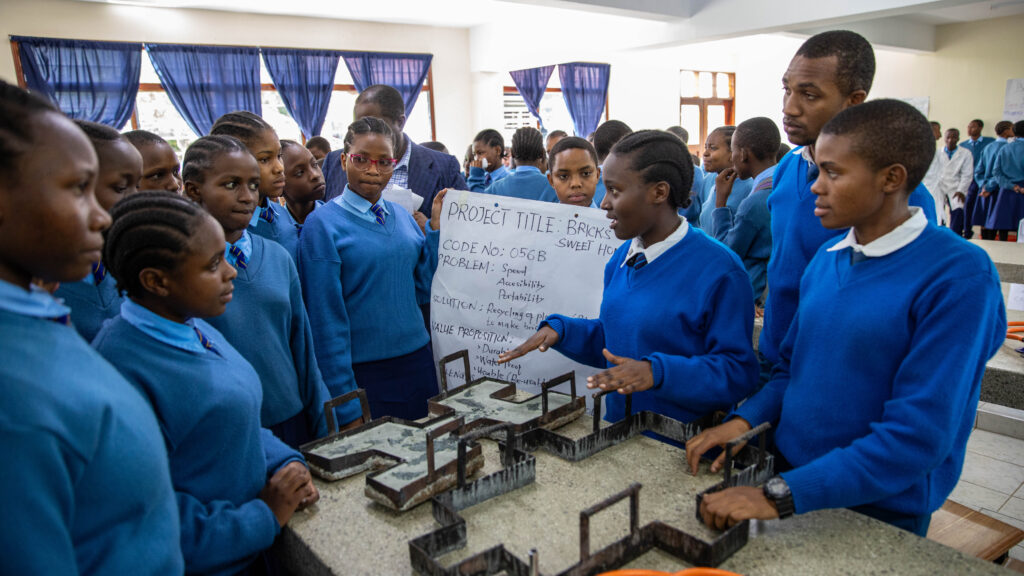
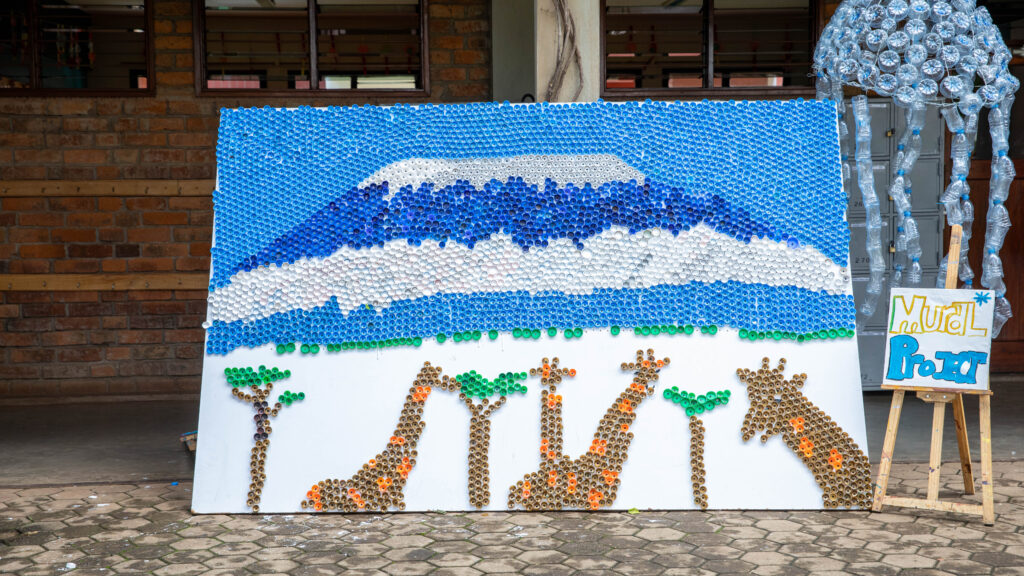
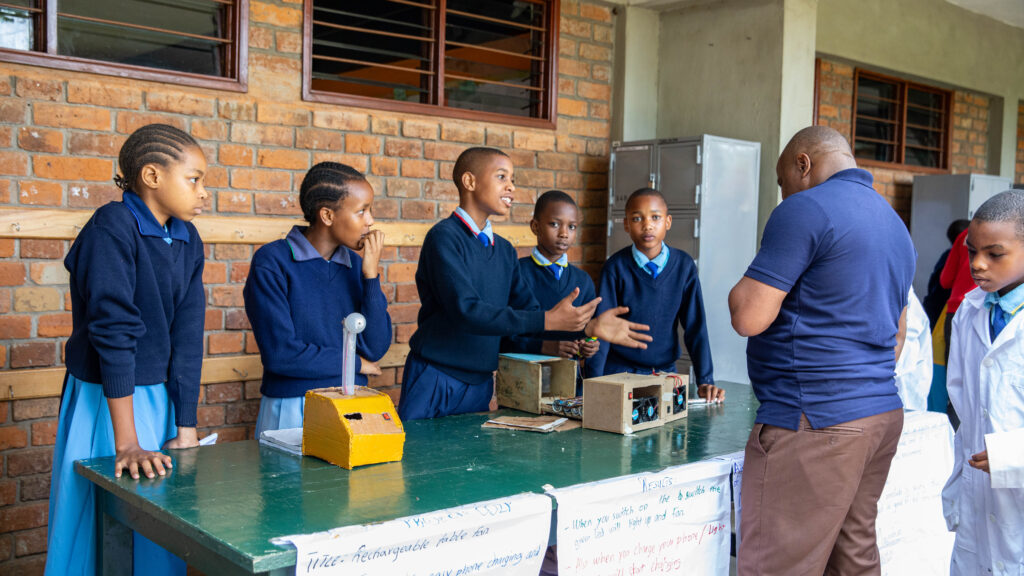
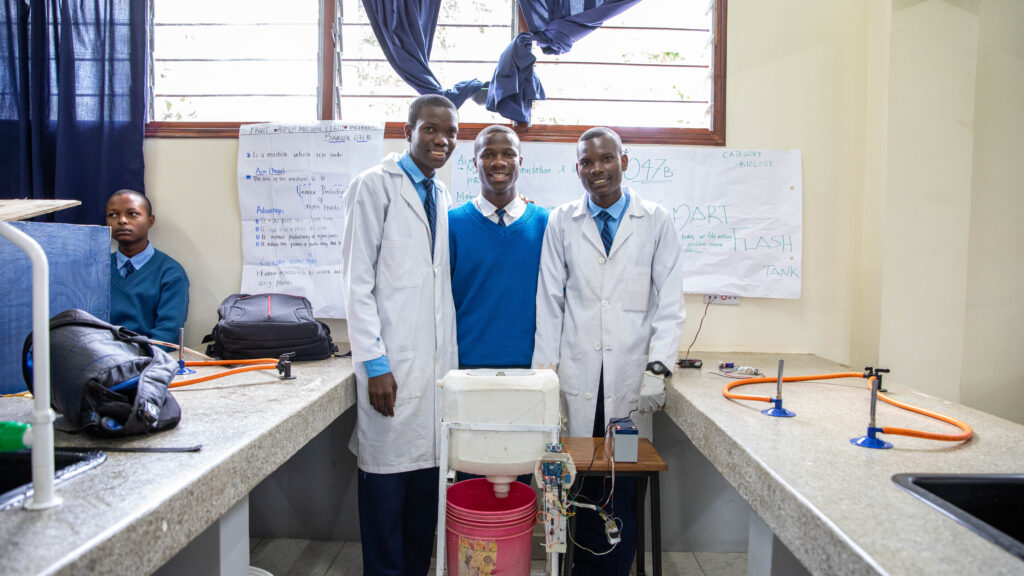

Every year, hundreds of new students enrol at St Jude's on full scholarships at the primary, lower- and upper-secondary levels across our three campuses. The scholarship application process is competitive and involves academic testing that considers the financial and social situation at home. Our Community Relations team oversees this entire process, with the help of the whole St Jude’s community. The team also handles student health and welfare, parent portfolio, and home visits.
"The students that attend St Jude's are from families who could not have otherwise afforded private school education," explains Philip, Community Relations Manager at St Jude's. "Providing free, quality education goes a long way in ensuring that children from such families have a future in which they thrive, effectively breaking the cycle of poverty."
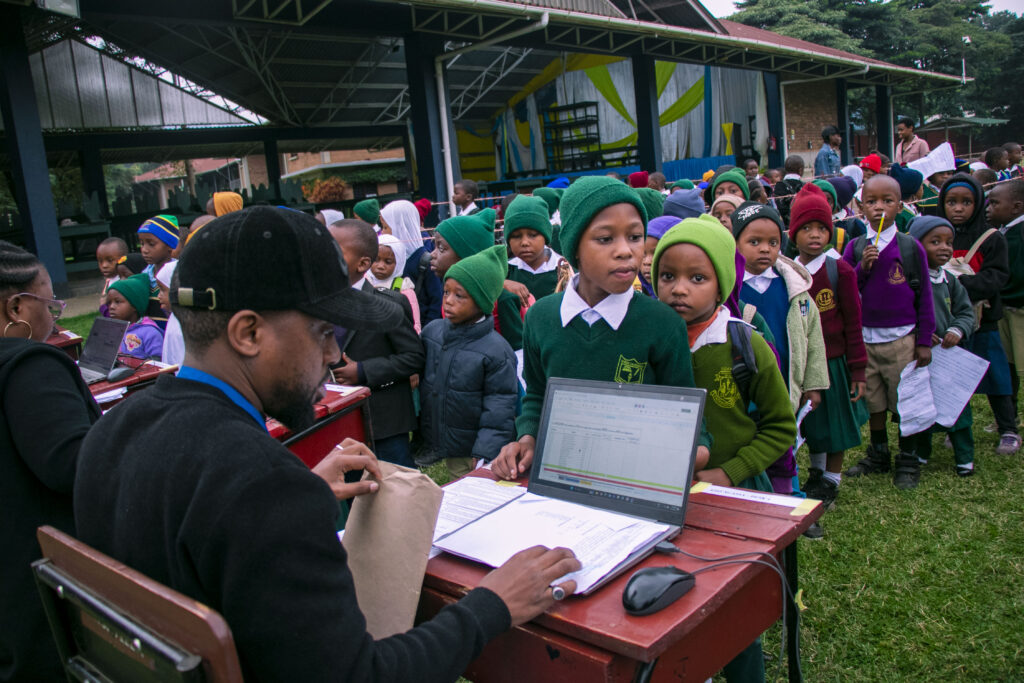
While free, quality education is a proven path out of poverty for our students' families, other challenges could prevent students from achieving their goals. According to St Jude's poverty assessment data, most, if not all, of our students' families do not have health insurance and never go for regular health check-ups. It is common for household members to visit a health centre or hospital only when they fall seriously ill or when home remedies fail. This lack of preventive care increases the risk of undiagnosed health complications that may go unnoticed for extended periods.
"That's why at St Jude's, we conduct annual health checks for all students, including newly enrolled and continuing students. A team of international and local medical professionals and volunteers spend two weeks at the school performing comprehensive health assessments. These checks provide recommendations that help us better understand our students' health needs and tailor our support systems accordingly," says Philip.
One significant intervention made possible by the health checks involved a student, Fatuma, a recent graduate of St Jude's Girls' Secondary School. During her initial health check, the medical team detected a hearing problem that her family had been unaware of. The St Jude's Health and Welfare team collaborated with her family to address the issue, allowing Fatuma to continue her studies freely.
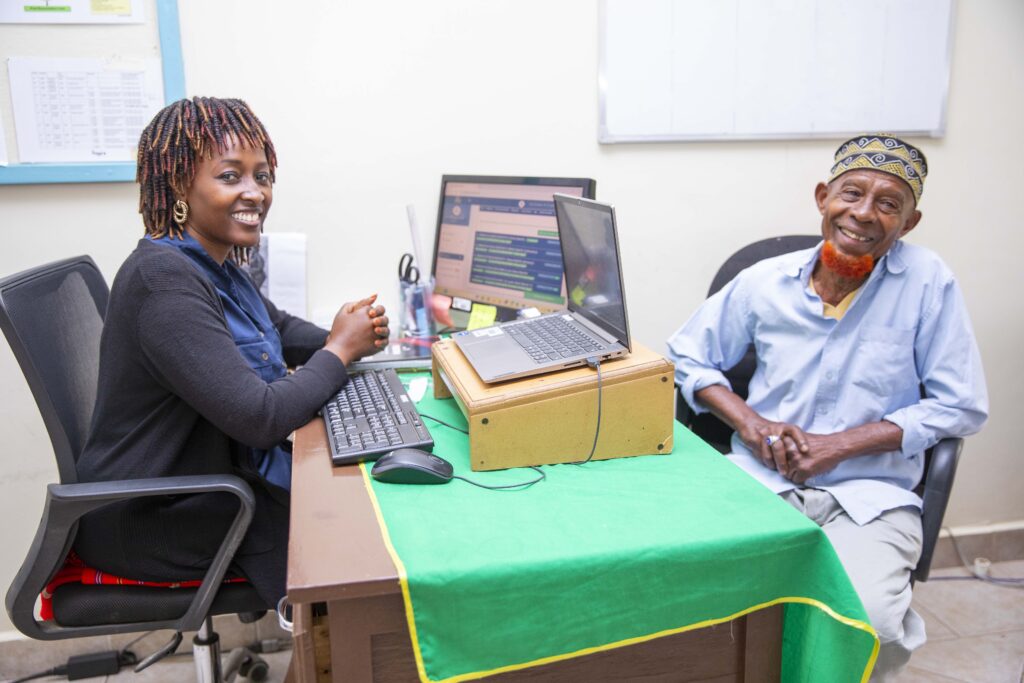
"Without the health checks, it's unlikely that we would have detected the problem and addressed it in time," reflects Fatuma's father, Abubakari, a single parent of three children. "Since my family does not have health insurance and never go for regular check-ups, these assessments were the only means for me to know what was wrong with my daughter and seek medical help."
Annually since 2010, St Jude's has been conducting health checks for its students. The program has evolved based on feedback from the school, the Health Check team, and knowledge of available health services in the region. With a shared understanding that healthy students learn more effectively, these health checks focus on identifying health and wellbeing issues that could impact students' ability to learn individually and collectively.
The Health Check team provides specific advice to parents regarding their children and general recommendations to the school based on observed health trends.
"As a school, we take proactive steps to support students who need special attention," says Gloria, Health and Welfare Officer at St Jude's. "These measures include dietary adjustments, regular sessions with the school counsellor, and other personalized interventions. My team works closely with parents to ensure students remain in peak health and that any health concerns are addressed promptly."
Beyond dedicated health and welfare programs, the school promotes positive student well-being through nutritious meals, physical education, extracurricular activities, a full-time school counsellor, and structured rest periods. A St Jude's scholarship goes beyond tuition and academic support—it ensures the success of future Tanzanian leaders through a truly holistic approach that prioritises education and well-being.

At St Jude’s, we know that good nutrition and health are the foundation for student success. Every day, 1,800 students and 300+ staff receive hot, nutritious meals that fuel their learning and overall wellbeing. But what does it take to keep everyone well-fed and healthy? Let’s take a closer look.
1 million meals a year
Each week, St Jude’s serves an incredible 32,000 hot meals—adding up to more than 1 million meals annually! Our dedicated kitchen team works tirelessly to prepare hearty, nutritious meals using staples such as beans, rice, maize flour, fruits and vegetables. To ensure every student receives a balanced diet, the school invests nearly AU$11,000 weekly in high-quality food. Students requiring special diets are catered for too.
Fresh, local, and nutritious
Good nutrition goes beyond filling plates. St Jude’s prioritises quality by sourcing more than 15,000kg of fresh fruits and vegetables monthly from trusted local suppliers. These nutrient-rich foods give students the vitamins and minerals they need to stay healthy, focused, and energised.
More than just meals: a holistic approach to student health
At St Jude’s, student health is as important as academic excellence. That’s why we take a comprehensive approach to wellbeing through:
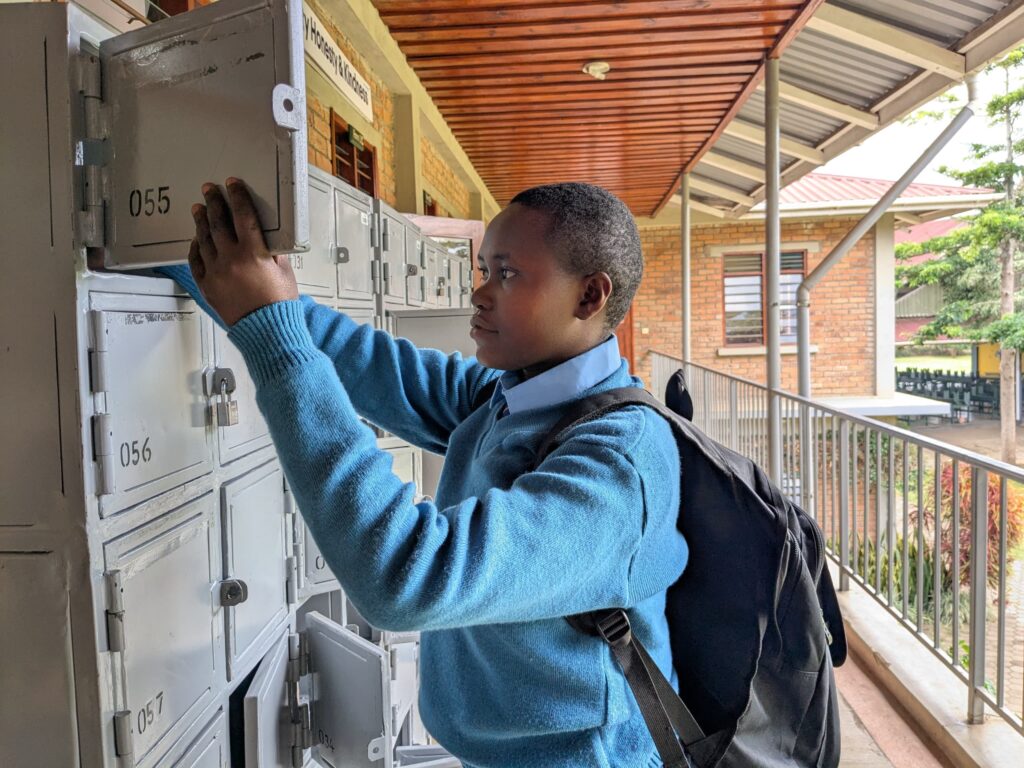
Before joining St Jude’s, 14-year-old Agripina’s day used to start at the crack of dawn. First, she checks on her elderly grandmother, cleans around the house, and tends to livestock. Afterward, she prepares her younger sister, and the pair would begin the 30-minute walk to school, often arriving early enough for Agripina to squeeze in about an hour of personal study before class.
"I have always maintained a strict daily schedule to balance my studies and chores at home," explains Agripina, one of the new students at St Jude's. "There was hardly enough time in the day to do everything so I had to get creative with my time," she adds.
For example, after school, Agripina stays a few more hours for personal studies and dedicates her free time on weekends to group discussions and additional studies. To make the most of her long commute, she would discuss lessons with schoolmates along the way. Her discipline, consistency, and hard work paid off as Agripina maintained the top position in her class throughout her primary school education.
In Tanzania, primary education is the first seven years of school, from Standard 1 to 7. At the end of Standard 7, students sit for a series of standardised national exams. Those who pass may be eligible to attend government school to continue with secondary education.
"If I made it to secondary school, I’d be the first in my family to do so," says Agripina. "But first, I had to pass the national examinations," she adds.
Agripina doubled down on her already tight schedule in preparation for her national exams, dedicating every moment of her free time to her studies. She would study by the fire while preparing family dinner, stay up late, and organise a small discussion group with classmates from the same neighbourhood. Her efforts eventually paid off, and Agripina passed her national examinations with remarkable results.
However, passing the Standard 7 national examination doesn't necessarily guarantee a spot in secondary school.
“Passing my Standard 7 exams was only the first step,” explains Agripina. “Next, I had to hope and wait for the government to allocate me to a school. This part is tricky because it’s completely out of my control,” she adds.
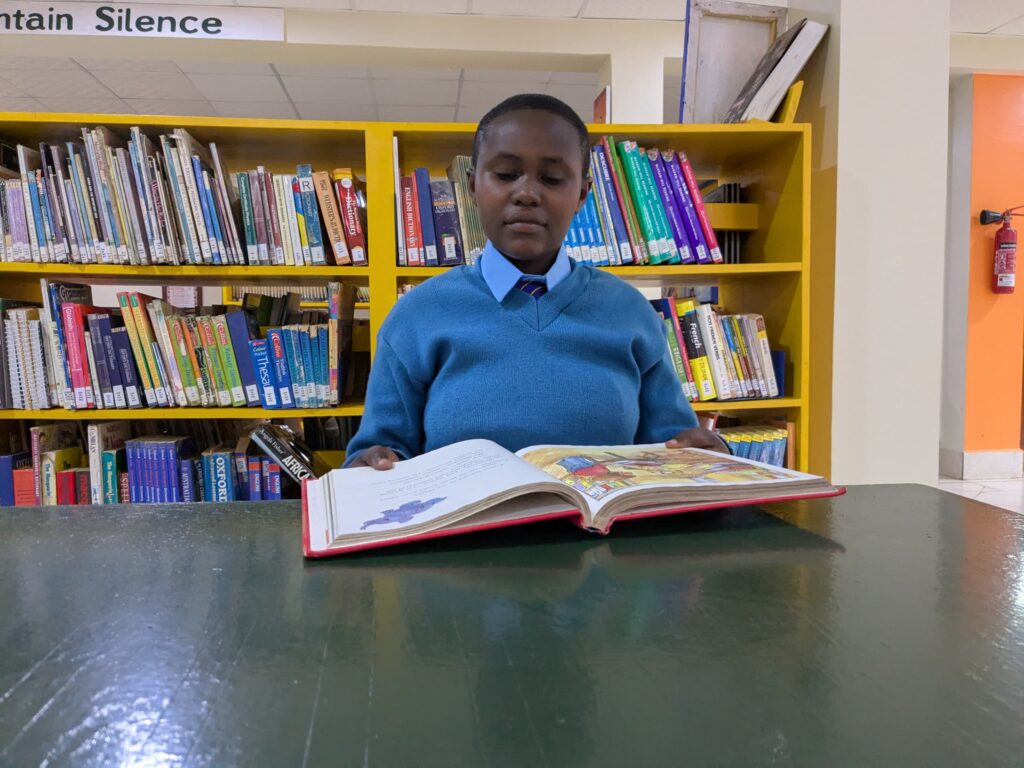
In Tanzania, government schools provide the most affordable education; they don’t charge school fees, but parents are expected to contribute to food, transport, stationery, uniforms, and other costs. Unfortunately, there aren’t enough secondary schools in Tanzania to match the growing number of primary school graduates. National data indicates only one secondary school for every four primary schools. It’s not uncommon for students to miss out on secondary education despite passing their exams due to the limited spots/places available.
Furthermore, secondary schools are often located far from students’ homes, making access even more challenging.
“I knew plenty of students, especially girls, who passed their exams but still didn’t make it to secondary school,” recalls Agripina. “It was scary to think that I could potentially end up in the same spot,” she adds.
Luckily for Agripina, she didn’t have to wait for the government's allocation. Her remarkable results caught the attention of St Jude’s, which promptly sent her an invitation to apply for a scholarship. In no time, she was on her way to one of St Jude’s centres to try her luck.
“It was quite an experience. There were so many students with their parents and guardians. St Jude’s took care of everything—transportation, food, and accommodation—since we had to spend the night and start the application process the following morning," she shares.
Agripina went through academic testing and excelled in all of them. Next came a pre-house check and document screening to determine her eligibility for the next steps. The last phase was a home visit by
St Jude’s staff for poverty assessment to determine whether the student’s family meets the school's scholarship criteria. This thorough process ensures that the most deserving students with exceptional academic potential make it through the scholarship program.
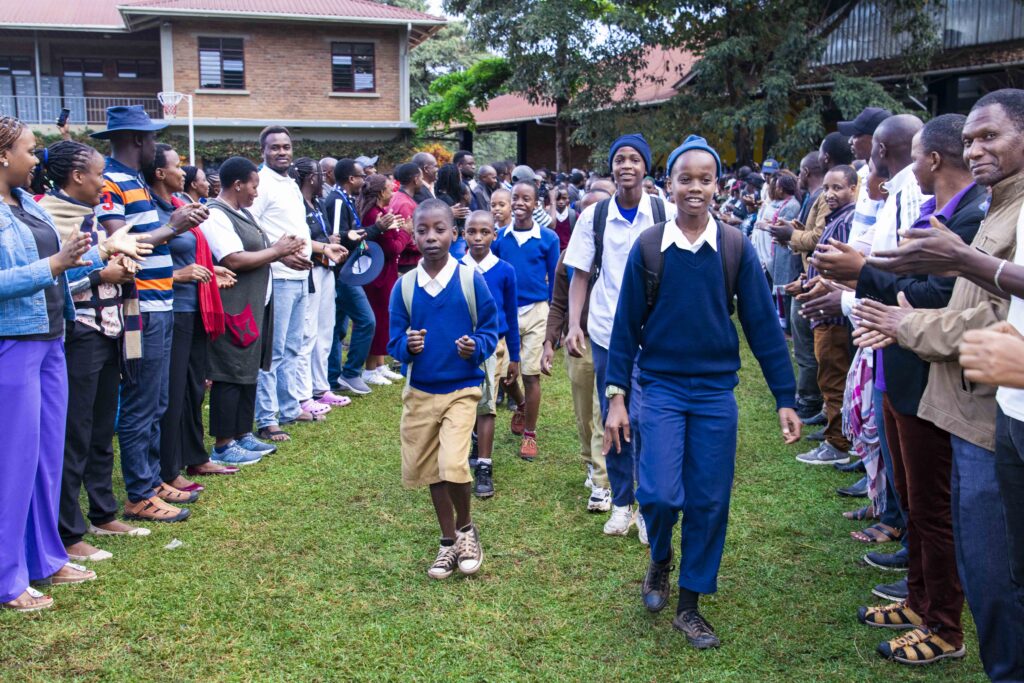
Out of over 2,000 students who applied for a scholarship at St Jude’s, Agripina was one of the 194 who eventually made it to the end.
“Joining St Jude’s makes all my hard work worth it,” she reflects. “I’ve only been here a few days, but I already love the school, the teachers, and my fellow students,” she adds happily.
Agripina aspires to become a doctor. Fittingly, she has joined St Jude’s Secondary Girls’ School, which boasts well-equipped science laboratories, excellent sports and academic programs, and a thriving science culture. With her discipline, determination, and access to St Jude’s resources, there’s no doubt she’ll achieve her dreams.

In Tanzania, the academic year for primary school runs parallel to the calendar year, starting in January and ending in December. Students enjoy a month-long holiday at the end of the year and return in January to begin a new academic year.
Primary education in Tanzania is the first seven years of school; starting in Standard 1, students graduate from primary school in Standard 7.
The first few weeks of January are usually filled with excitement as students transition to the next academic level and reunite with friends they haven’t seen in a while. We recently caught up with Grace, one of our primary school students, to hear about her recent holiday and her plans for the year ahead.
I enjoyed spending time with my family and playing with my friends.
When we visited my grandmother for Christmas, I met with my cousins and had lots of fun together! We also enjoyed delicious food and drinks.
Yes. I want to study hard so that I can become a soldier one day.
I helped my mum around the kitchen, and she showed me how to prepare some meals.
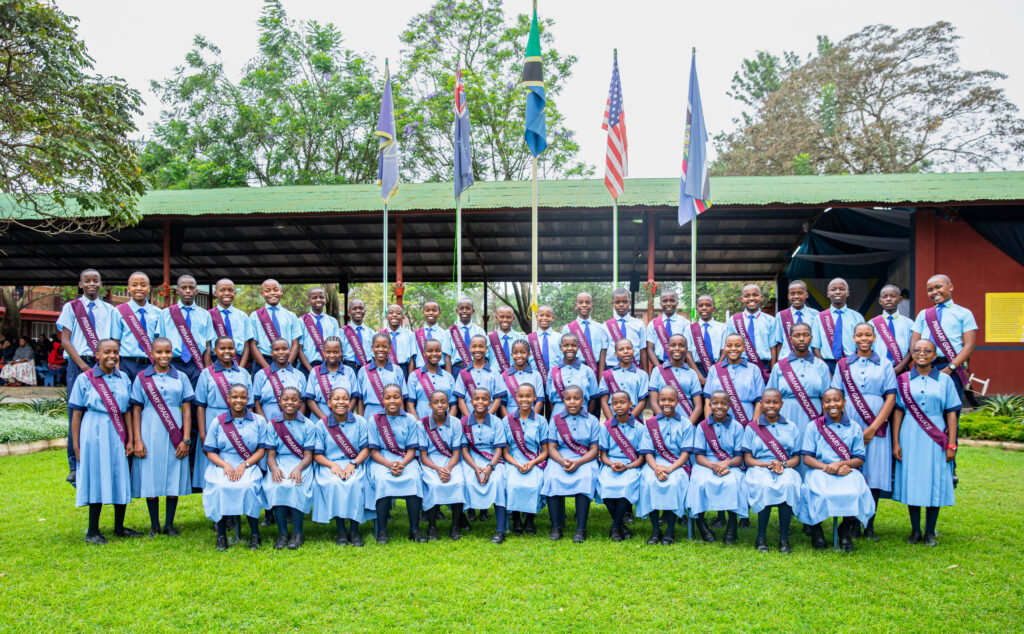
Completing primary school education is an important milestone.
There are three key stages of school in Tanzania; seven years of primary school from Standard 1 to 7,
then four years of secondary school from Forms 1 to 4 in Ordinary Level (O Level) studies, and finally the
final two years of secondary school, Forms 5 and 6 in Advanced Level (A Level) studies.
It sets the stage for students to begin pursuing their careers and specialising on their preferred subjects.
It's an exciting achievement for students and proud moment for parents.
This is what it means in their own words...
How does it feel about moving on to secondary school?
We’re excited! We look forward to meeting new friends, learning different subjects, and experiencing
boarding school for the first time.
What are your next goals for next year as you start secondary school?
Our main goal is to improve in Mathematics and lay a strong foundation for our future studies.
What are some of the most important lessons you’ve learned throughout your school years?
We learned to challenge ourselves, think critically, and seek help when needed instead of staying silent.
Can you share one of your most memorable experiences at school?
The Ngorongoro trip was unforgettable. We saw many animals, visited Olduvai Gorge, and learned
about the Zinjathropus skull. It was our first long journey and exploration of such a significant site.
Do you have any advice for the students coming up after you in Standard 7?
Enjoy learning and find a balance between academics and extracurricular activities.